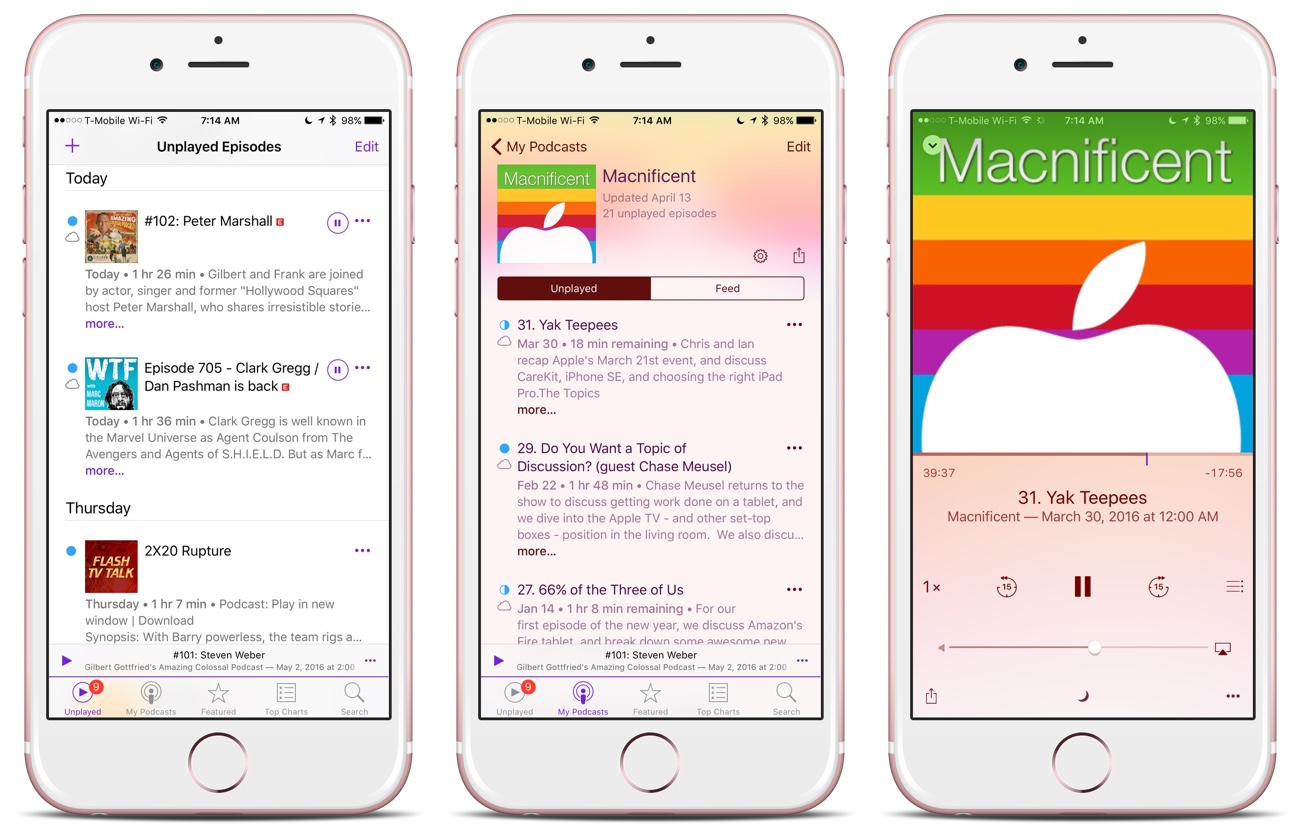Apple met with a group of leading podcasters last month to allow them to air their grievances over podcast monetization, data, and other issues they feel need to be addressed. The New York Times reports the meeting took place at Apple’s Cupertino, Calif., headquarters.

The Times sources indicate Apple invited seven podcast professionals to take part in an open discussion about the current state of podcasting.
… The podcasters say that they are relegated to wooing a single Apple employee for the best promotion. That sharing on social media is cumbersome. And that for podcasters to make money, they need more information about their listeners, and Apple is in a unique position to provide it. The problems, they say, could even open up an opportunity for a competitor.
Also among podcasters complaints are a dated iTunes support structure, a lack of monetization tools, and much needed features for promoting podcasts from within iTunes, and via social media. Apple backend podcasting services have, for the most part, remained unchanged since Steve Jobs first debuted the service back in 2005.
“Apple built this village 10 years ago,” Mr. Lieber [Matt Lieber, a co-founder of Gimlet Media] said. “There’s really interesting things in the village, and interesting characters. But the village now has the population of a city — and when a village becomes a city, you need new infrastructure.”
A major vehicle for making revenue for podcasters is advertising, but the mechanisms available to glean and measure listener numbers are outdated, with listener metrics beyond simple download counts woefully lacking. There is no way to tell if a listener heard all of the podcast, or stopped listening just a few minutes in. Sharing numbers are also lacking. This is all valuable information when attempting to sell advertising for a podcast.
Apple’s lack of investment in updating their podcasting platform can likely be greatly contributed to one factor: they don’t make any money from the platform. Apple doesn’t take a cut of the revenue from podcasters, unlike how it wets its beak from app, music, video, and ebook sales.
Podcasters are faced with wooing one Apple employee – Steve Wilson – as they jockey to get a position on the iTunes podcast charts. The actual podcast ranking and featured content systems currently in place are also being questioned.
Mr. Wilson, podcasters say, acts as Apple’s de facto podcast gatekeeper. Attention from him can be the difference between a hit and a dud — and between a podcast that pays and one that doesn’t.
While Apple is still the market leader in the podcast industry, its lead is fading fast, as competitors are taking notice of podcasters, and are beginning to offer them the types of tools they want and need. Spotify debuted their own podcasting service in January, offering publishers access to listener data, in addition to simple hosting and streaming services. Apple still pulls in 65% of listeners, (via tracking firm RawVoice), however that number is down 70% year-over-year.
“We’re actively distributing our content in many different places right now,” said Laura Walker, president and chief executive of New York Public Radio, whose podcasts include “Radiolab,” “Freakonomics” and “2 Dope Queens.” “Everything is growing.”
At least in the face of possible competition for podcasters voices, and listeners ears, Apple does seem to be willing to consider some changes in the way it does things. We’ll keep you posted.

